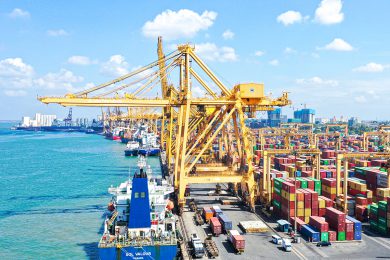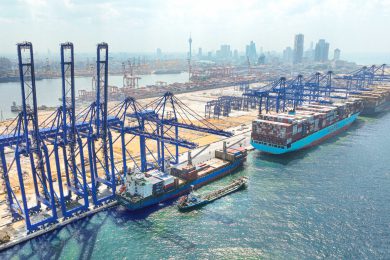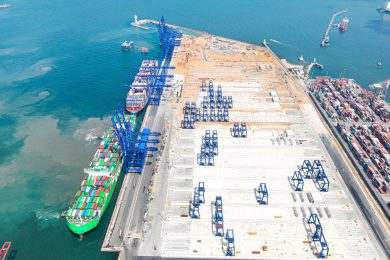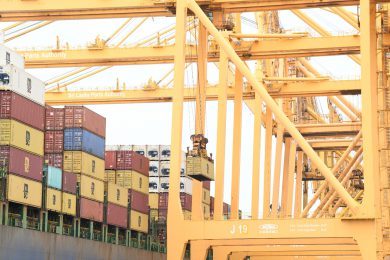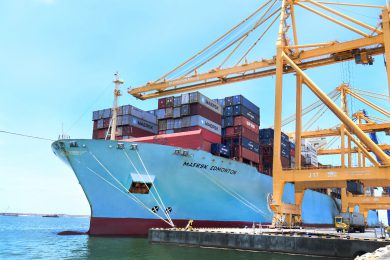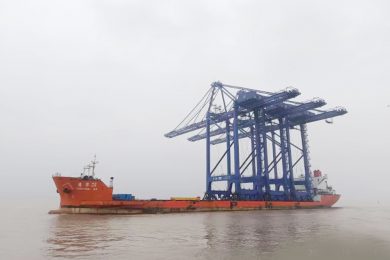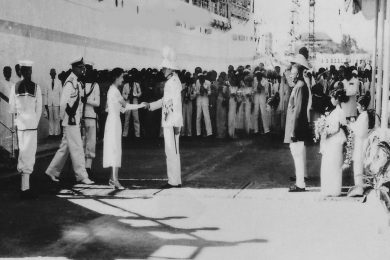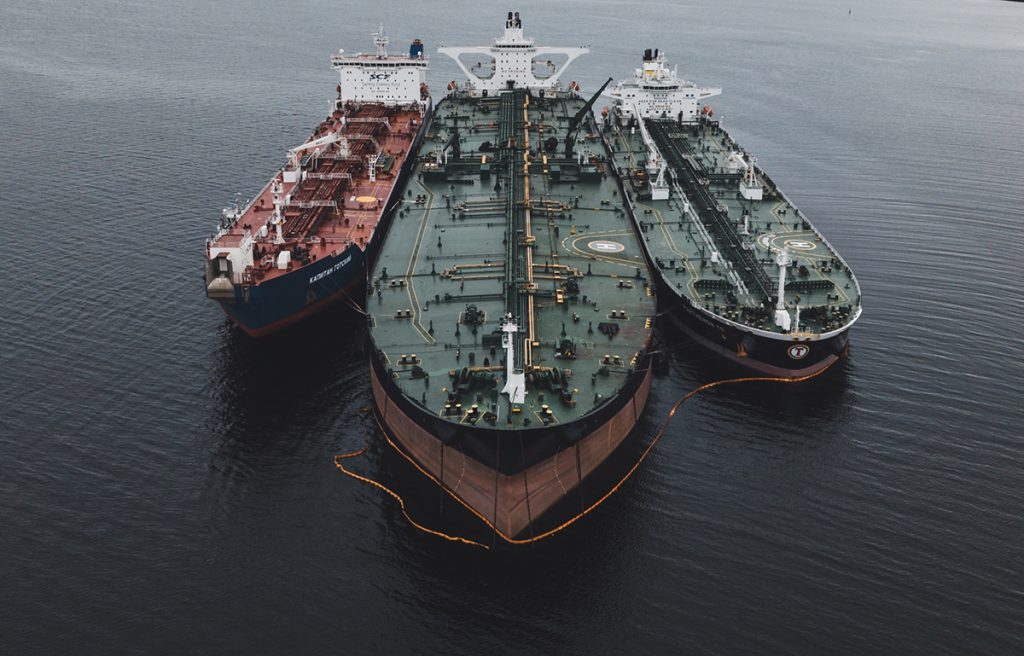When it comes to the Indian Ocean, maritime crime and security has long been a central subject of attention.
by Dr. Jessica Larsen, PhD[i]
While corona has closed down vast parts of social life, production and borders in most countries, ports and shipping are some of the only functions that have kept going. Even during lockdown, people need food and goods.
With shipping unfortunately comes maritime crime, corona crisis or not. Inter alia, smuggling in the Indian Ocean[ii] and piracy incidents in the Gulf of Guinea[iii] are just some of the illegal activities that have been reported during lockdown.
When it comes to the Indian Ocean,maritime crime and security has long been a central subject of attention. Be it counter-terrorism operations in the north, or counter-piracy in the east off the coast of Somalia, the international community and regional states have addressed various threats to shipping through elaborate law enforcement activities.
While these efforts are important to suppress maritime crime and ensure the freedom of navigation, their efforts are limited to the sea. This neglects how illicit activities at sea are realised: smuggling, piracy and other types of maritime crime are, of course,organised, launched and supported from land.
If such criminal enterprises are dependent upon coastal support, ports can play a central role in their suppression and prevention. Port authorities, operators and the shipping industry are valuable in this regard and could be drawn more closely into the maritime security architecture in the Indian Ocean than is the case today.
The role of ports in maritime crime
With 90% of all trade moving by sea, ports are important logistical nodes in international trade and transportation.[iv]In the Indian Ocean, there is currently increasing attention to ports. China, the United Arab Emirates and other Gulf states are constructing and expanding deepwater ports to create new, bigger and better terminals that are able cater to international trade.[v] This is the case in for instance Sri Lanka and Pakistan as well as Djibouti, Somalia, Somaliland, Puntland and Sudan.
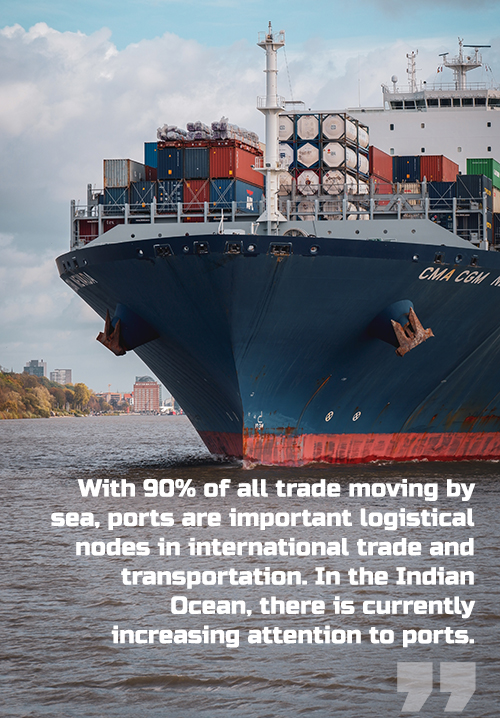
While ports can bring economic growth to the greater region, they can also serve the logistics of licit and illicit enterprises alike. On the one hand, it is known that if ports lack proper training, technology, inspection procedures or suffer from corruption, this can be used to avoid import/export controls to bring illicit goods from the sea into port ‘unnoticed’, or ship them out to sea.
On the other hand, ports have a role in preventing and combatting crime. Proper governance structures and implementing standards to carry out inspection can counter port-based criminal activities – before they reach the sea. And on-the-ground knowledge and awareness can help identify irregularities.
From the perspective of maritime security, ports are therefore both part of a greater problem and part of the solution. And action is needed regarding the latter. Approximately500 million containers are shipped globally every year, yet only two percent of them are inspected.[vi] This gap is likely to grow with port capacity increasing in the region, as newport facilities are created in the Indian Ocean, and existing ones become better equipped to handle shipping flows. It leaves a potentially rewarding opportunity for criminal groups to conduct illicit business activities, such as smuggling contraband or weapons,the proceeds of which are used to strengthening transnational criminal networks, thus further destabilising the security situation at sea.
Recent maritime security efforts
But ports are hardly part of the larger maritime security infrastructure in the Indian Ocean. Devised in particular in the wake of Somali piracy, this infrastructure is extensive, yet focuses mainly on the maritime domain, i.e. 1) law enforcement at sea;2) prosecution of crimes committed at sea; and 3) capacity-building of regional security sectors to strengthen local capabilities in the carrying out the former two.[vii]
Overarching these three components are important coordination forums, not least the Contact Group on Piracy off the Coast of Somalia and the Shared Awareness and Deconfliction mechanism, as well as the Indian Ocean Naval Symposium, each of which bring together states, organisations, navies and the shipping industry to discuss and align.
There are a range of regional inter-governmental organisations that, by virtue of their member states’ policy interests, have developed strong concern for addressing maritime security, such as the Southern African Development Community,the Indian Ocean Commission and the Gulf Cooperation Council.
And finally, vital coordination and information-sharing centres have been established, for instance the National Information Sharing and Coordination Centre and the Regional Centre for Operations Coordination in Seychelles and the Regional Maritime Information Fusion Center in Madagascar.
But there lacks an overall body which can provide effective cooperation and coordination across maritime security issues – and, indeed, one which can bring ports into this effort. Once which can build common narratives across the vast Indian Ocean Region and ensure comprehensive maritime domain awareness, sufficient legal frameworks and governance.
Here, the 2009 Djibouti Code of Conduct stands out. Under the auspices of the International Maritime Organization, it originally committed 20 littoral and island states to cooperate around the suppression of piracy.[viii]In 2017, the Djibouti Code of Conduct was updated with the so-called Jeddah Amendment.[ix] It broadened the scope of maritime security issues to include not only piracy but also other forms of maritime crime, and it specifies authorities’ responsibilities and areas of collaboration. Importantly, the Amendment included a port dimension.
However,not all stakeholders are signatories to the Jeddah Amendment and the port dimension is weak. It follows the International Ship and Port Facility Security Code about the prevention of threats against ships and ports,such as terrorist attacks.[x]But it does not detail broader measures to coordinate the prevention of for instance transnational organised criminal activities that use ports to move between land and sea. Since the two are closely connected, there is a need for better integration.
A way forward
Port authorities, customs, operators and the shipping industry are ideally placed to contribute to regional maritime domain awareness by participating in maritime security frameworks from a port-based perspective on activities such as coordination, information-sharing, risk assessment and incident reporting, registration and investigation.
The role of ports should, therefore, be acknowledged as an important frontier in law enforcement and be placed centrally in the maritime security infrastructure that already exists in the region. With the current expansion of deep-water ports in the Indian Ocean, now is an important time to integrate ports and the shipping industry in such efforts of suppressing and preventing criminal activities spanning the land-sea divide.
There are already some relevant initiatives. Apart from the Jeddah Amendment, the UNOffice on Drugs and Crime and the Worlds Customs Organization run a container control programme to increase security in the international supply chain of container traffic. They facilitate training and information exchange on container profiling to strengthen port authorities’ ability to intercept shipments carrying illicit goods.[xi]
For the Indian Ocean region specifically, the European Union signed a new EUR 28 million programme in 2019 on port security and safe navigation in the Indian Ocean. It aims to improve information-sharing about sea freight and passengers; reinforce control operations and monitoring; support the countering of organised crime and terrorism; and foster cooperation between regional stakeholders.[xii]
It will be interesting to follow how these initiatives unfold in the years to come. Careful consideration of results and action-based research on its effects are needed, because there is still a lack of knowledge about the dynamics of port management and operations specifically from the perspective of maritime security.
What we do now is that security governance in ports shape the security situation in the maritime domain. The ways in which ports are governed can, therefore, affect regional security and, ultimately, the conditions for growth and development. Building on the existing maritime security infrastructure in the region, the inclusion of ports in the law enforcement and coordination in the Indian Ocean would make overall efforts more effective.
[i]https://www.diis.dk/en/experts/jessica-larsen
[ii]https://en.dailypakistan.com.pk/07-May-2020/pakistan-coast-guards-seize-3-510-kg-charas-in-balochistan
[iii]https://www.maritime-executive.com/article/nigerian-navy-successfully-interdicts-maritime-kidnapping-attempt
[iv]https://www.ics-shipping.org/shipping-facts/shipping-and-world-trade
[v]http://pure.diis.dk/ws/files/2802454/PB_Gulf_states_in_Horn_of_Africa_finalfinalWEB2904.pdf
[vi]https://www.unodc.org/ropan/en/BorderControl/container-control/ccp.html
[vii]https://www.diis.dk/publikationer/pirates-in-paradise
[viii]http://www.imo.org/en/OurWork/Security/PIU/Pages/Content-and-Evolution-of-the-Djibouti-Code-of-Conduct.aspx
[ix]http://www.imo.org/en/OurWork/Security/PIU/Documents/DCOC%20Jeddah%20Amendment%20English.pdf
[x]http://www.imo.org/en/OurWork/Security/Guide_to_Maritime_Security/Pages/SOLAS-XI-2%20ISPS%20Code.aspx
[xi]https://www.unodc.org/ropan/en/BorderControl/container-control/ccp.html
[xii]http://foreign.govmu.org/English/News/Pages/Signature-of-the-financing-agreement-of-the-EU-programme-on-%E2%80%98Port-security-and-safe-navigation%E2%80%99-.aspx?fbclid=IwAR1DN89vrUj11hd-GI8J0eXPy5d0__dhQcongAWXxO11SURP7usFo7uuvlE

The writer is a Researcher at the Danish Institute for International Studies, Copenhagen. Her research focuses maritime security and ocean governance, in particular the suppression of maritime crime in waters surrounding the African continent. Themes include international cooperation, the enforcement of law at sea and the relation between regional and international actors. Views expressed in this article are the author’s own



